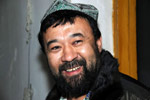Foreign and Military Affairs
China's development benefits Southeast Asia
Updated: 2011-02-14 07:21
By Zhou Wa and Zhang Zhouxiang (China Daily)
BEIJING - Experts called on Southeast Asian countries to pay more attention to the benefits that China's peaceful development brings to the region, while China should also understand the concerns of these countries about the nation's dynamic growth.
"It is not reasonable just to look at the impact that Chinese investment on Southeast Asian markets, more attention should be paid to its benefits," said Su Hao, director of the Center for Strategic and Conflict Management at the China Foreign Affairs University in Beijing.
Su's remarks were in response to a report published last week in The Christian Science Monitor, in which concerns were raised from Southeast Asian countries that greater trade liberalization between China and ASEAN countries may put local businesses at a disadvantage.
"China's development is beneficial to both sides, because they are at different stages of economic development, thus making them more complementary than competitive," said Zheng Anguang, a researcher on Sino-ASEAN studies from Nanjing University.
With the China-ASEAN Free Trade Area Investment Agreement coming into force on Jan 1, 2010, it has become a popular trend for Chinese enterprises to build plants in ASEAN countries.
For example, Chinese textile giant Hodo Group plans to invest $320 million in Sihanoukville Autonomous Port in Cambodia.
"That will create huge amounts of local job opportunities and tax receipts," said Zheng, adding that the level of local infrastructure construction will also be highly improved.
"Boosting the whole industrial chain from China to Southeast Asia, China can help make products from the region more competitive around the world," said Su.
Meanwhile, China has been making efforts to maintain political mutual trust in the region.
In the past decade, China has been engaging with various ASEAN-initiated regional institutions and forums, such as, ASEAN-China (10+1), ASEAN +3 (ASEAN plus China, Japan and the Republic of Korea), the ASEAN Regional Forum, and the East Asia Summit.
But security is still a major concern of many ASEAN countries, especially those with territorial and maritime disputes with China, Su said. "These countries might fear that a stronger China could push the United States out of regional affairs."
However, Su was confident that they could solve problems through peaceful negotiations, following the example of Vietnam, which seeks to solve land and sea disputes with China through negotiations.
Since 2006, the two countries have held 10 joint patrols, thus greatly improving military trust.
The Declaration on the Conduct of Parties in the South China Sea should be "further improved and better implemented", so as to provide a general framework for all interested sides in the South China Sea, Su said.
Facing these concerns from Southeast Asian countries, China should show more understanding to them, analysts said.
"To assuage the concerns of Southeast Asian countries, China could make more contributions to Southeast Asia in disaster relief, food security, combating piracy, fighting epidemics and so on," said Li Mingjiang, an expert on China and East Asian security at Nanyang Technological University in Singapore.
China should also enhance military exchanges with Southeast Asian countries to reduce suspicion, Li added.
The East Asian community must bring together countries with diversified cultures and political systems, Su said, but more importantly, it must be open to the rest of the world.
For example, the 2010 East Asia Summit meeting decided to include both the United States and Russia in 2011, which will greatly promote coordination and dialogue.
Cui Haipei contributed to this story.
China Daily
(China Daily 02/14/2011 page11)
Specials

Spring Festival
The Spring Festival is the most important traditional festival for family reunions.

Top 10
A summary of the major events both inside and outside China.

A role model
Alimjan Halik had been selected as the "Cyberspace Personality Who Moved the Hearts of the Chinese in 2010".